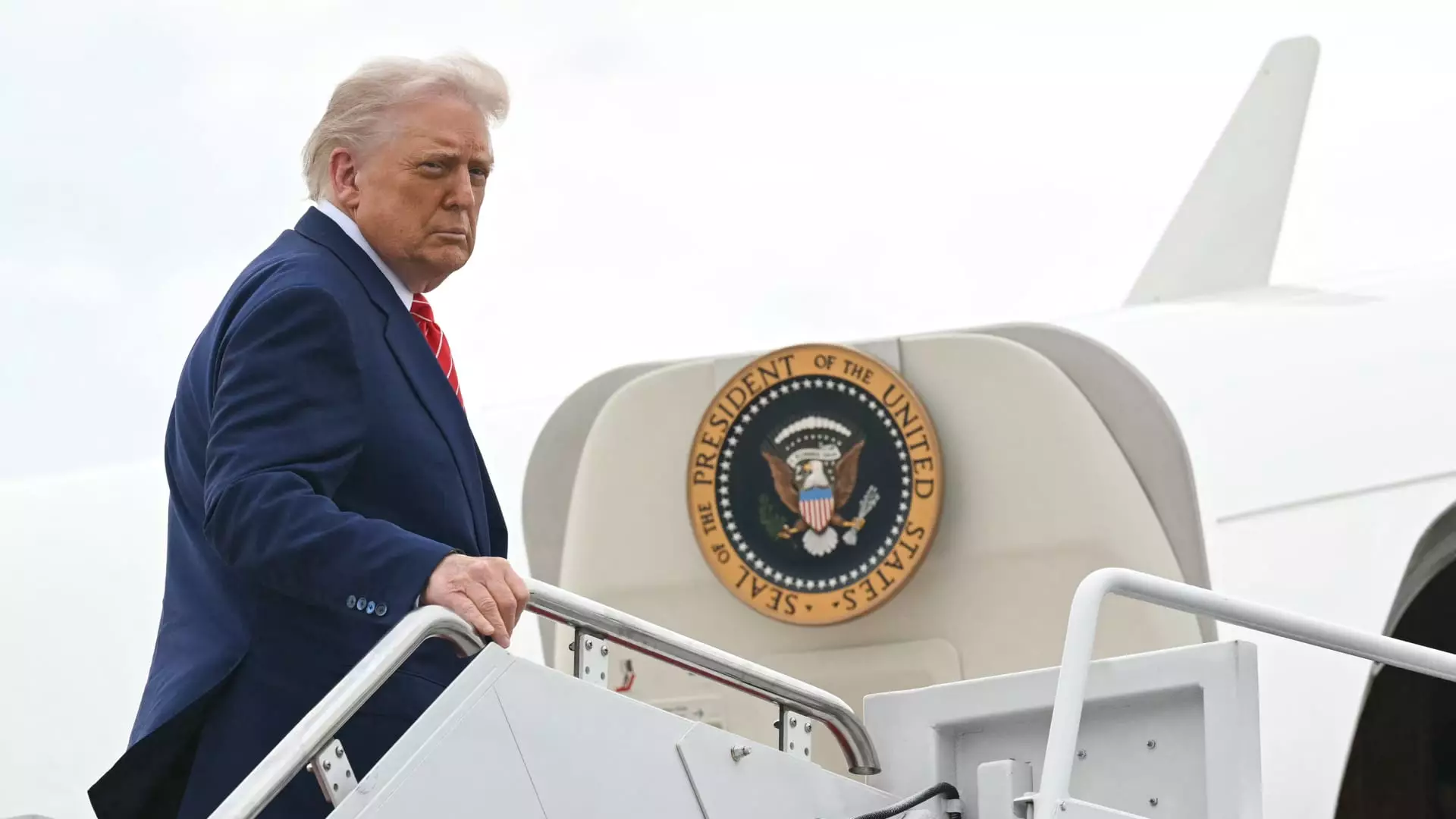In an era of tumultuous political climates, few elements of President Donald Trump’s economic strategy have garnered as much attention—and controversy—as his administration’s unwavering commitment to tariffs. Despite a recent judicial setback that ostensibly questions the legality of these measures, Trump’s top aides, including Commerce Secretary Howard Lutnick, have made it abundantly clear: “Tariffs are not going away.” This slogan has become a rallying cry for the Trump administration amid a precarious legal landscape that could reshape the very foundation of America’s trade policy.
What has emerged from this discord is a startling reality: the determination of key economic advisers, like National Economic Council Director Kevin Hassett, underscores an ideological aversion to traditional mechanisms of international trade. Their claims of legal confidence in the tariffs stem not merely from a desire to protect American economic interests but also reflect a broader mindset that eschews established norms of governance. While they invoke the notion of a “national emergency” to justify the implementation of these tariffs, their approach raises important questions about the legality and moral soundness of wielding economic tools as weapons in international negotiations.
The Legal Quagmire
The federal court’s ruling that struck down Trump’s tariffs has undoubtedly sparked a legal hornet’s nest. By determining that the International Emergency Economic Powers Act (IEEPA) does not sanction the president’s unilateral ability to impose sweeping tariffs, the judiciary has stepped into a quagmire fraught with implications for the executive branch’s power over economic policy. Yet, the Trump administration’s ability to briefly halt this ruling has allowed them to treat the subsequent court battles as mere speed bumps. This presents a troubling reality where the rule of law becomes malleable to the whims of a ruling party, casting aside established checks and balances.
The very fact that legal challenges are anticipated tells us much about the administration’s tenure. It highlights a stark contradiction: a government that proclaims itself as a protector of American interests while simultaneously undermining its foundational principles of legality and fairness. It is a peculiar kind of governance where aggressive posturing in courtrooms becomes a central strategy for policymaking, endangering the fabric of American democracy itself.
The Realities of Economic Warfare
What remains undeniably clear in this maelstrom of tariffs is the palpable sense of economic warfare that has infiltrated global markets. Trump’s tariffs, born from a response to what he perceives as unfair trade practices by other nations, have set a precarious precedent. Such a narrative of ‘America first’ fosters a toxic environment that invites retaliation rather than cooperation. We witness this unfolding in real time as countries around the globe respond in kind, wielding their own economic tools against U.S. exports. The irony is staggering: in Trump’s quest to protect American goods, he risks isolating the U.S. from the very markets that sustain its economy.
As Lutnick ominously suggested, a ruling against the tariffs threatens to expose America to the whims of foreign tariffs, casting the U.S. as a victim on an international stage. But framing tariffs as a protective shield misses a vital point: using economic power to retaliate may lead to cyclical conflict rather than resolution. This approach paves the way to economic ruination, not just through immediate financial implications but also through the erosion of relationships that could foster mutual growth.
An Uncertain Future
Even as Trump’s administration pushes forward, the underlying uncertainty looms over its future trajectory. With various alternatives hinted at by economic advisors, it seems that Trump is hedging his bets. Hassett’s vague assurances of “other alternatives” suggest a nascent desperation; an admission that should the legal tide turn against the current tariff strategy, they may be forced to adapt but would likely do so without a clear and responsible plan.
This evolving tale of tariffs encapsulates more than just fiscal policy. It signposts a philosophical divide over how America engages with the world. The fixation on tariffs reflects a retreat into isolationism and a repudiation of the global interconnectedness that has historically fueled American prosperity. Instead of fostering dialogue and shared growth, the current administration threatens to trap the U.S. in a cycle of economic protectionism—one that could undermine not only its own economic health but also the foundational principles of global trade and cooperation that have facilitated prosperity for decades.


Leave a Reply